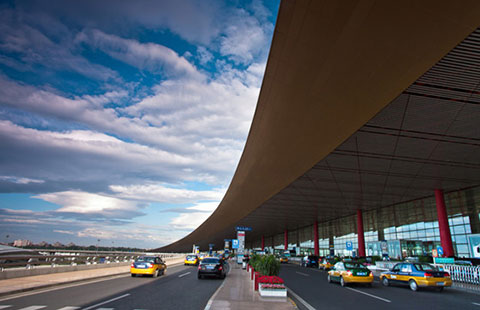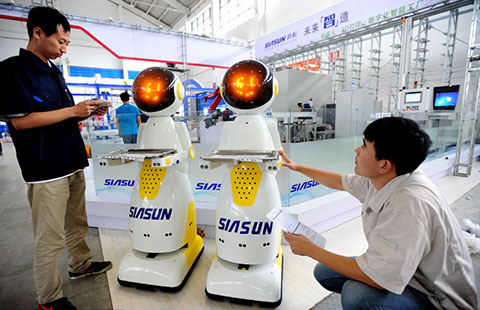Westward ho! for China's processing trade
By Li Jiabao in Ganzhou, Jiangxi (China Daily) Updated: 2012-06-26 09:24
|
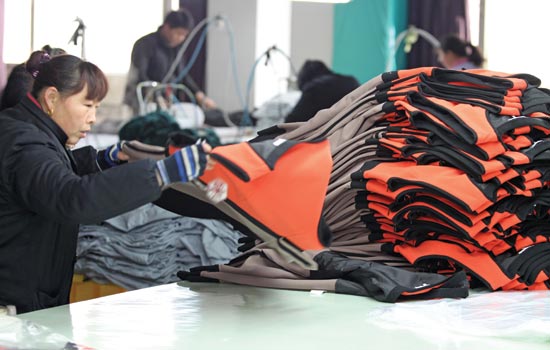 |
|
A clothing factory in Rugao, Jiangsu province. Since 2007, the Ministry of Commerce has selected 44 cities in central and western China as destinations for exportprocessing businesses, which are moving inland from coastal cities. [Photo/China Daily] |
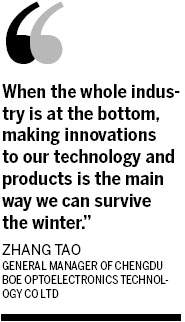
Support for exports
Since 2007, the ministry has selected 44 cities in the country's central and western regions as destinations for export-processing businesses, which are moving inland from coastal cities. Governments have since introduced measures, including financial aid and labor services, for those enterprises.
One of the destinations has been Ganzhou, a city in southern Jiangxi province.
Ganzhou has a population of 9 million and is about 450 kilometers from Shenzhen. It is now a place abuzz with the construction of factories.
Ganzhou welcomes investment from nearby places, such as the Yangtze River Delta, the Pearl River Delta and Fujian province. "Low costs, a solid labor force and well-developed infrastructure are the chief reasons why the city was chosen by the ministry in 2007," said Hu Juwen, deputy mayor of Ganzhou.
Cai Rong, personnel director of Qinye Industry (Longnan) Co Ltd, a toymaker established in 2007 in Ganzhou, said: "It costs only 730 yuan ($120) a month to hire a worker, while a worker's salary in Shenzhen is 1,500 yuan. And the cost of the factory's land in Ganzhou will be from 5 to 6 yuan per square meter, half of that in Shenzhen."
"Shipping and storage costs are higher than in the coastal city," she said. "All told, costs in Ganzhou are about 5 percent lower than in Shenzhen."
Last year, Ganzhou attracted $929 million in foreign direct investment, mainly in the textile and apparel, electronic, machinery and food-processing industries.
In addition to attracting export-processing businesses with relatively low labor costs, the southwestern city of Chengdu, Sichuan province, has also driven manufacturers to make upgrades.
"Technological innovation is the most important step that Chengdu BOE Optoelectronics Technology Co Ltd can take to combat the fierce competition in the industry," said Zhang Tao, its general manager. "The company's decision to set up a production line in Chengdu in 2008 was not only a result of the city's preferential policies and convenient transport but also of its deep talent pool," Zhang said.
"When the whole industry is at the bottom, making innovations to our technology and products is the main way we can survive the winter."
Processing trade manufacturers' migration from the coast to Chengdu has transformed the city into an inland hub for the electronic information, biopharmaceutical, machinery, petrochemical and food-processing industries, among others, said Li Hao, deputy director of the Chengdu bureau of commerce.
Intel Corp arrived in Chengdu in 2003 and was followed by more than 20 other chipmakers, including Texas Instruments Inc and Semiconductor Manufacturing International Corp.
Led by Foxconn Technology Group and Compal Electronics Inc, IT companies and component makers have swarmed into Chengdu since 2010 and established an industry worth up to 100 billion yuan.
"The benefits to the local area also include employment and consumption," Li said.
"Foxconn employs more than 100,000 workers in Chengdu, which not only prevented those people from having to travel long distances but also stimulated local expenditure on housing, catering and similar things."
lijiabao@chinadaily.com.cn
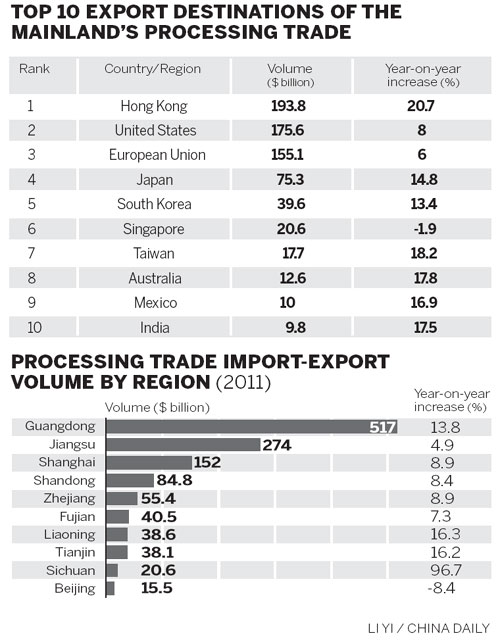
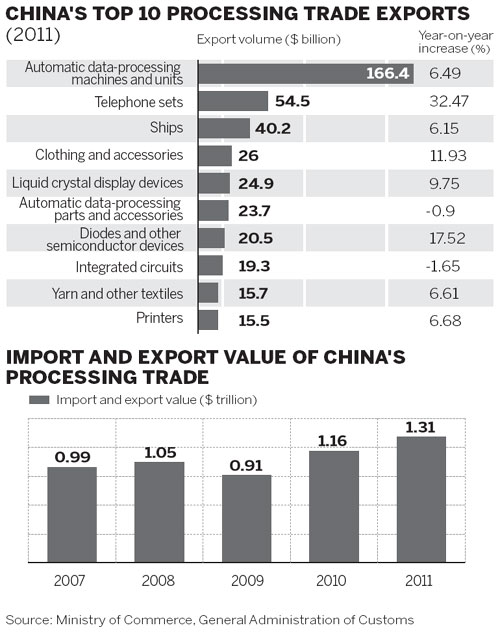
- Tsinghua graduates invent 3-D pancake-printing machine
- $16b added by 50 brokerages to support shaky market
- Australia's opposition under pressure to approve China-Australia FTA
- China mulls intensified economic cooperation in border areas
- China to set up 60b yuan fund to support SMEs
- Luxury brands cash in on growth potential
- Chocolate companies see sales melt away
- Mondelez slims down after biscuit sector crumbles



